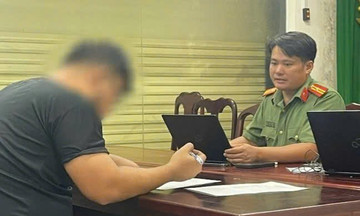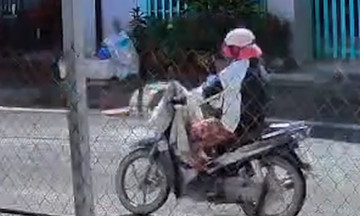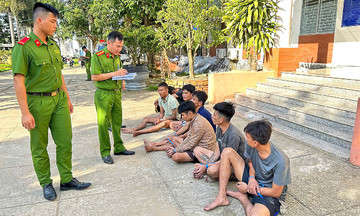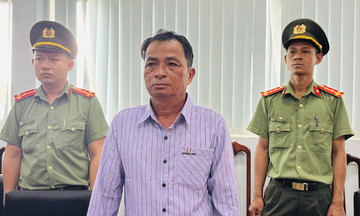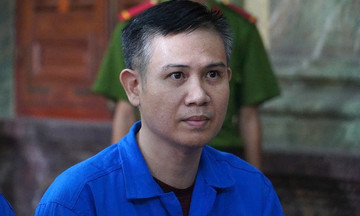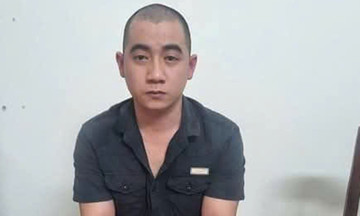On 25/9, after 5 days of deliberation, the Ho Chi Minh City People’s Court found Chinh, 51, former chairman of the Housing Development and Trading Joint Stock Company (HDTC), guilty of violating state asset management regulations, resulting in significant losses.
Huynh The Nang, 66, former general director of Vinafood II, received a 9-year and 6-month sentence for the same crime. Nguyen Tho Tri, 64, former deputy general director of Vinafood II, was sentenced to 6 years.
The court confirmed the prosecution's charges against the three defendants were accurate and justified. Their actions were deemed exceptionally serious, causing substantial damage to the state budget.
However, the court acknowledged mitigating factors for Chinh, including his remorse, confession, numerous commendations, family contributions to the revolution, involvement in school construction, and efforts to rectify the situation, leading to a reduced sentence.
The court also considered that Nang and Tri did not personally profit, had received commendations and medals during their careers, and had partially compensated for the losses. As a result, they received lighter sentences than the maximum penalty.
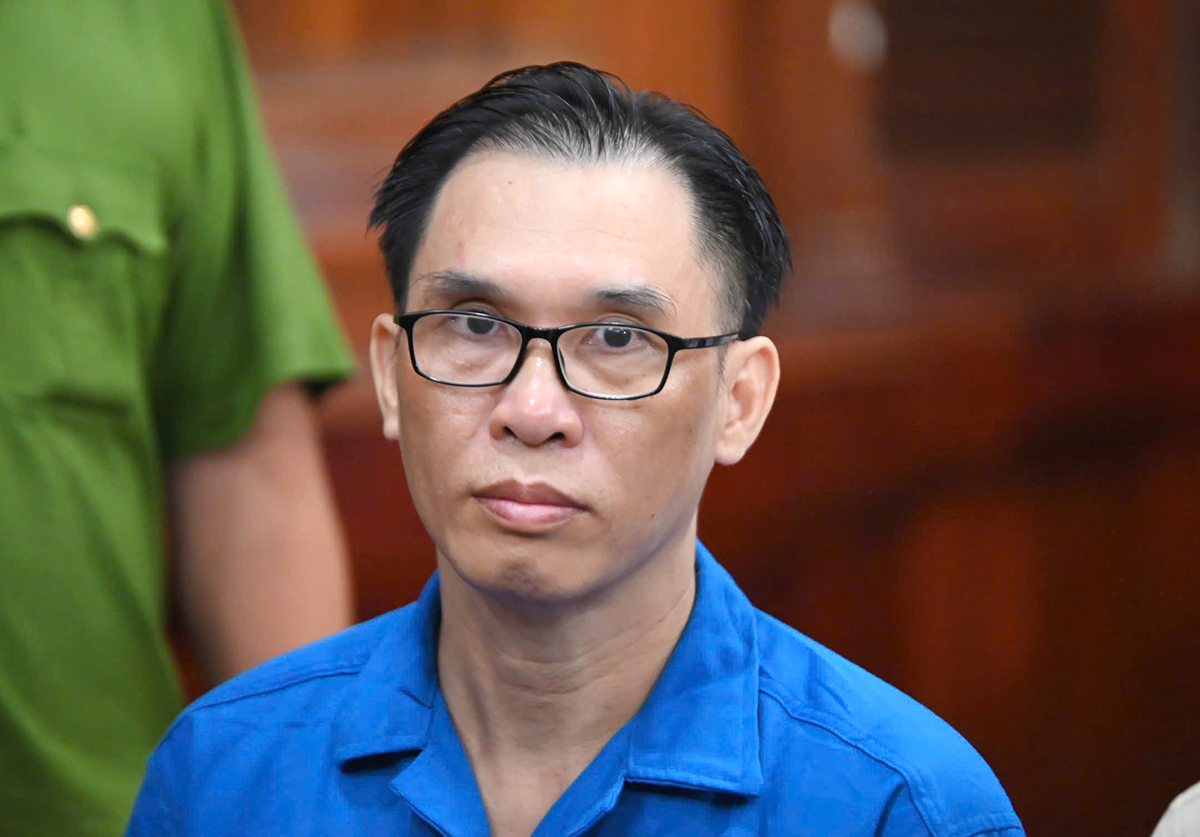 |
Defendant Dinh Truong Chinh. Photo: Nhat Vy |
Defendant Dinh Truong Chinh. Photo: Nhat Vy
Prime properties flipped after 33 days
Vinafood II, a state-owned enterprise, was entrusted with managing over 6,300 m2 of land at 33 Nguyen Du Street and 34, 36, and 42 Chu Manh Trinh Street in Ben Nghe Ward, District 1. In 2010, after fulfilling financial obligations exceeding 766 billion VND, Vinafood II received land use rights certificates from the Ho Chi Minh City People’s Committee for the construction of a hotel, office tower, and commercial center.
However, between 2014 and 2015, due to financial losses, Vinafood II decided to liquidate these four properties to recoup capital and repay debts.
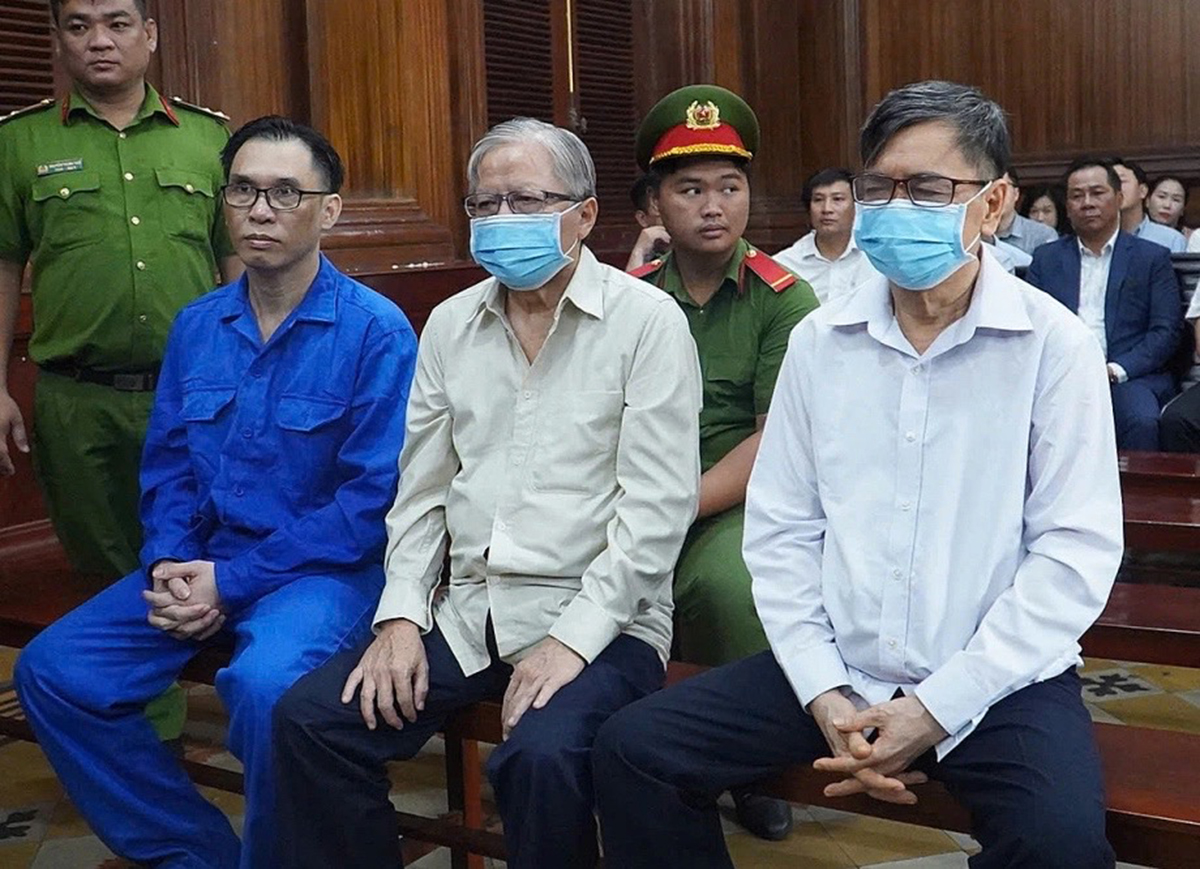 |
Huynh The Nang (right), Nguyen Tho Tri (middle), and Dinh Truong Chinh in court. Photo: Hai Duyen |
Huynh The Nang (right), Nguyen Tho Tri (middle), and Dinh Truong Chinh in court. Photo: Hai Duyen
The investigation revealed that Dinh Truong Chinh, then representing Viet Han Company, exploited this situation, repeatedly submitting proposals to purchase the land. Chinh and Nang allegedly agreed on a "capital contribution-divestment" scheme to acquire the land without a public auction. Subsequently, they established Viet Han Saigon Company to develop the project.
In December 2015, Vinafood II signed a capital contribution and transfer contract for the land at a price of 730 billion VND (570 billion VND for capital contribution and 160 billion VND for divestment of 20% stake). Chinh committed to continuing the project.
However, the investigation found Chinh's intention was not to develop the project but to acquire and resell the properties for profit. After paying over 730 billion VND, he offered the land to several real estate groups for around 2,000 billion VND. Just 33 days later, he transferred 99% of Viet Han Saigon's capital to Winter Real Estate Joint Stock Company for 1,683 billion VND, profiting nearly 970 billion VND.
To conceal the resale, Chinh allegedly used his cousin, Hoang Ngoc Cam Hong, as a nominee to receive the 99% stake in Viet Han Saigon, valued at 792 billion VND. The contract was merely symbolic, with Hong making no payment. On 2/2/2016, the Ho Chi Minh City Department of Planning and Investment amended the business registration, confirming Hong's 99% ownership.
As arranged by Chinh, Hong then resold this stake to Winter Real Estate for 1,683 billion VND. Upon receiving full payment, Hong issued nine payment orders, transferring 792 billion VND to Viet Han Company to legitimize the initial contract. The remaining nearly 900 billion VND was withdrawn and transferred to accounts as directed by Chinh, eventually circulating back to Viet Han Company and Chinh's personal account.
Within 33 days of purchasing the four properties from Vinafood II for 730 billion VND, Chinh and Viet Han Company profited 970 billion VND.
The prosecution determined the land was state-owned and required a public auction, with transfers permitted only with government authorization. However, due to a prior agreement with Nang, Chinh proceeded with the illegal transfer, causing a loss of 970 billion VND and incurring criminal liability.
Nang, aware of the regulations, collaborated with Chinh to legitimize the transfer through the capital contribution-divestment scheme and admitted his wrongdoing. The investigation attributed his actions to limited legal understanding and directives from superiors, with no evidence of personal gain.
Similarly, Tri assisted Nang in legalizing the procedures due to misinterpretation and directives from superiors, with no evidence of personal gain.
Hong has since left the country. The investigation has separated the case involving her and other related individuals and entities for further investigation and processing.
Quoc Thang



